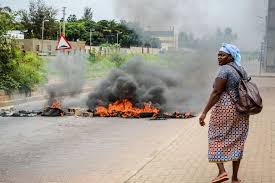When the dynamics of North Africa are in question, the main issue that comes to mind is the imminence of an armed conflict within Libya. Such perspective bears consequences not solely upon the neighboring countries, but also further afield towards Europe, as the latter will find itself in the position of embracing, alongside the asylum seekers, the terrorist factions infiltrated amongst them. The security concern they pose is heightened by the likelihood of further recruitment within the refugee centers, thus endangering the safety and stability of the host country.
It is no news that Libya accommodates a large number of terrorist groups, besides those encountered in the neighboring Algeria and Tunisia. It should not slip the count though the factions deployed by Turkey under the pretense of supporting the GNA against the LNA. Independent observers, military experts and representatives of several international organizations have indicated that on the 7th of January 2020 around 1500 armed individuals, operating under the flag of Jabhat al Nosrah – terrorist group sponsored by Turkey – have set foot in Libya, under the promise of being granted Turkish citizenship no questions asked once their deployment was over. The experts have pointed out that Turkey will continue to send military personnel in Libya; Ankara’s endgame however is not the support of the GNA forces, as it publicly claims, but the historically rooted goal of reestablishing the influence that The Ottoman Empire once held over the countries in North Africa. Odds are that such ambitions will further materialize in the incursion of the terrorist factions into European territory, in their attempt to shake the stability and security of these countries by perpetrating violent attacks and assassinating political figures.
Libya’s neighboring countries – Tunisia, Egypt, Algeria, Sudan, Niger and Chad – are all keeping a nervous eye on the developments registered on Libyan soil. Under the current circumstances, their reluctance to any foreign intervention comes as no surprise. Tunisia and Algeria have deployed forces alongside the Libyan border and they have raised the ground and naval alert level, pressing the international community to plead for the ban of any external involvement in Libya.
In what the situation on the ground is concerned, hostilities continue between the GNA’s forces and the LNA, especially in Tripoli’s suburbs. Monday, the 9th of January CY, general Khalifa Haftar has managed to free Sirte from the control of what he calls “armed militias and terrorist groups”. Libyan eye witnesses have indicated that the LNA continues to advance towards Tripoli from multiple directions – Al Hodhba, Salahudin, Ain Zareh and the former international airport, just to name a few, the troops being thus 20 to 30 km away from the capital’s city center. In addition, the LNA has banned the Al Jolan airline from operating, threatening to take down any aircraft that enters Libyan space – the decision being taken out of fear of Turkish intrusion.
At the end of the day, the situation in Libya remains tense, with no clear resolution in sight. In the meantime, efforts are directed towards the management of the repercussions of the given status quo, the Tunisian government and other local, regional and international humanitarian organizations attempting to develop a contingency plan in order to support the Libyan asylum seekers.
(From A.L., our correspondent in Tunisia)


